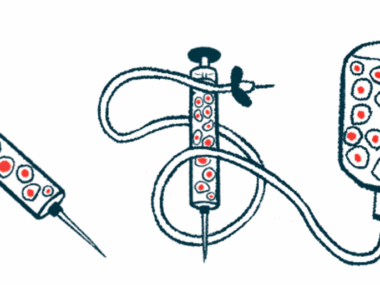MJFF Offering Online Guide for Patients Considering DBS
Written by |

The Michael J. Fox Foundation (MJFF) has released a new guide that aims to help people with Parkinson’s disease and their loved ones make informed decisions about deep brain stimulation (DBS), a surgical treatment for the disorder’s motor symptoms.
The 22-page guide, which is freely available online, was written by Rachel Dolhun, MD, a movement disorder specialist who serves as the foundation’s senior vice president of medical communications. It was reviewed by leading Parkinson’s physicians and DBS experts.
“Some of the most common questions from patients and families — whether they’ve been recently diagnosed or have lived with Parkinson’s for many years — are around DBS,” Dolhun said in a press release.
“The goal of this guide is to provide information about the DBS journey, everything from thinking about the treatment option to having the procedure and beyond. And ultimately to empower people and families to learn more, ask questions, or start conversations about this treatment option,” Dolhun added.
In DBS, a pacemaker-like device is implanted in the brain, which — after calibration by a specialist — sends electrical pulses to specific brain regions.
This treatment can ease certain disease symptoms, particularly motor symptoms like slowness, stiffness, dyskinesia (involuntary movements), and dystonia (atypical, often painful muscle contractions), according to the guide. However, the guide also notes that other symptoms — such as walking and balance difficulties, speech problems, cognition and mood abnormalities, and bladder, bowel or sexual changes — tend not to respond to DBS.
The new guide outlines who is most likely to benefit from DBS: the procedure is generally recommended for people who have had Parkinson’s for at least four years (in the U.S., this is a requirement), who have experienced a benefit from treatment with levodopa or similar medicines, who don’t have significant cognitive or mood problems, and who are generally healthy enough for surgery.
“Not everyone is a candidate for DBS, but those who are may see a substantial benefit in terms of symptom and medication reduction following the procedure,” the guide states.
The guide gives details on the different types of DBS devices that are available, and it provides an overview of what getting DBS is like, from finding a doctor, to the surgical procedure itself, to how life is affected after the procedure. For example, it notes that some activities — like rock climbing and full-contact sports — can damage the DBS device, and should be avoided after surgery. It also notes that the device can set off metal detectors, and provides tips for how to manage travel.
It also has a detailed list of questions that individuals considering DBS should discuss with their healthcare team, ranging from logistical considerations based on the specific device used, to understanding its known limitations before and after surgery, and covering costs.
In addition, a variety of anecdotal reports are offered from people with first-hand experience with DBS.
“My husband, Jewell, had DBS in 2016, as part of a clinical trial. It’s been nothing short of life-changing for us,” said Mary Beth Mohn, of Edina, Minnesota.
“DBS wasn’t the amazing ‘fix all’ that we thought it would be,” said Charlie, of Reading, England. “After my dad, Ade, had DBS, we realized our expectations were too high and had to reevaluate them. If we could go back, we wouldn’t hesitate to have it done, but it has certainly been a journey that is still ongoing.”
Jim McNasby, MJFF’s chief people officer and a Parkinson’s patient, served as a contributor on the guide.
“Everyone’s Parkinson’s journey is unique, and so are the treatment options,” McNasby said. “DBS provided me an opportunity to take less medication and feel a sense of independence again. My husband Donny and I welcomed the opportunity to provide our input and personal story for this guide as we know many families seek resources to better educate themselves on all aspects of the disease.”
The guide was made possible with support from Abbott Laboratories, which specializes in health technologies.
“By partnering with The Michael J. Fox Foundation, we are able to help provide people living with Parkinson’s disease and their families the educational resources they need to make informed treatment decisions to help them live their lives to the fullest,” said Binith Cheeran, MD, director of medical affairs for neuromodulation at Abbott.





